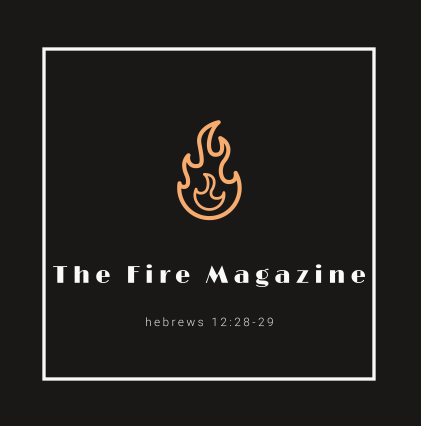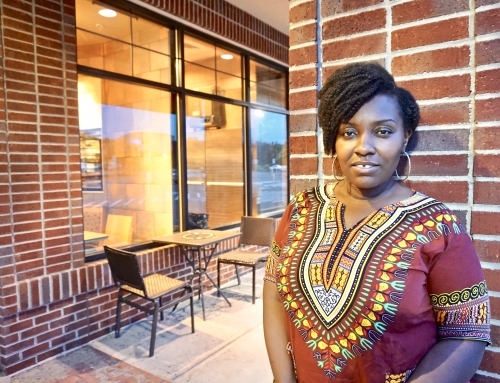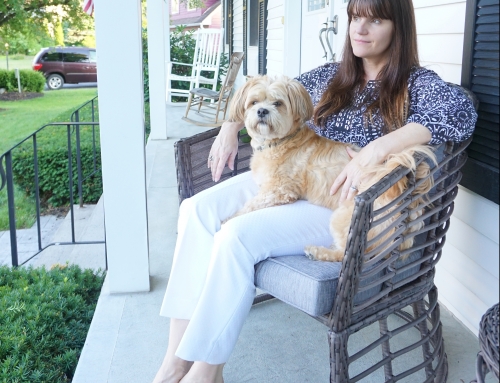[fusion_builder_container hundred_percent=”no” hundred_percent_height=”no” hundred_percent_height_scroll=”yes” hundred_percent_height_center_content=”yes” equal_height_columns=”no” menu_anchor=”” hide_on_mobile=”small-visibility,medium-visibility,large-visibility” status=”published” publish_date=”” class=”” id=”” background_color=”#ffffff” background_image=”” background_position=”center center” background_repeat=”no-repeat” fade=”no” background_parallax=”none” enable_mobile=”no” parallax_speed=”0.3″ video_mp4=”” video_webm=”” video_ogv=”” video_url=”” video_aspect_ratio=”16:9″ video_loop=”yes” video_mute=”yes” video_preview_image=”” border_size=”” border_color=”” border_style=”solid” margin_top=”” margin_bottom=”” padding_top=”50px” padding_right=”” padding_bottom=”” padding_left=””][fusion_builder_row][fusion_builder_column type=”1_6″ layout=”1_1″ spacing=”” center_content=”no” link=”” target=”_self” min_height=”” hide_on_mobile=”small-visibility,medium-visibility,large-visibility” class=”” id=”” background_color=”” background_image=”” background_image_id=”” background_position=”left top” background_repeat=”no-repeat” hover_type=”none” border_size=”0″ border_color=”” border_style=”solid” border_position=”all” padding_top=”” padding_right=”” padding_bottom=”” padding_left=”” margin_top=”” margin_bottom=”” animation_type=”” animation_direction=”left” animation_speed=”0.3″ animation_offset=”” last=”no”][/fusion_builder_column][fusion_builder_column type=”2_3″ layout=”1_3″ spacing=”” center_content=”no” link=”” target=”_self” min_height=”” hide_on_mobile=”small-visibility,medium-visibility,large-visibility” class=”” id=”” background_color=”” background_image=”” background_image_id=”” background_position=”left top” background_repeat=”no-repeat” hover_type=”none” border_size=”0″ border_color=”” border_style=”solid” border_position=”all” padding_top=”” padding_right=”” padding_bottom=”” padding_left=”” margin_top=”” margin_bottom=”” animation_type=”” animation_direction=”left” animation_speed=”0.3″ animation_offset=”” last=”no”][fusion_title hide_on_mobile=”small-visibility,medium-visibility,large-visibility” class=”” id=”” content_align=”center” size=”2″ font_size=”” line_height=”” letter_spacing=”” margin_top=”” margin_bottom=”” text_color=”#f09c57″ style_type=”default” sep_color=””]
Genocide Survivors – 15 years later
[/fusion_title][fusion_title hide_on_mobile=”small-visibility,medium-visibility,large-visibility” class=”” id=”” content_align=”center” size=”1″ font_size=”” line_height=”” letter_spacing=”” margin_top=”” margin_bottom=”” text_color=”#000000″ style_type=”default” sep_color=””]
Interview with Richard & Olivier Mandevu of Gatumba Survivors
[/fusion_title][fusion_separator style_type=”single solid” hide_on_mobile=”small-visibility,medium-visibility,large-visibility” class=”” id=”” sep_color=”#f09c57″ top_margin=”10px” bottom_margin=”40px” border_size=”” icon=”” icon_circle=”” icon_circle_color=”” width=”50px” alignment=”center” /]
[/fusion_builder_column][fusion_builder_column type=”1_6″ layout=”1_1″ spacing=”” center_content=”no” link=”” target=”_self” min_height=”” hide_on_mobile=”small-visibility,medium-visibility,large-visibility” class=”” id=”” background_color=”” background_image=”” background_image_id=”” background_position=”left top” background_repeat=”no-repeat” hover_type=”none” border_size=”0″ border_color=”” border_style=”solid” border_position=”all” padding_top=”” padding_right=”” padding_bottom=”” padding_left=”” margin_top=”” margin_bottom=”” animation_type=”” animation_direction=”left” animation_speed=”0.3″ animation_offset=”” last=”no”][/fusion_builder_column][/fusion_builder_row][/fusion_builder_container][fusion_builder_container hundred_percent=”no” hundred_percent_height=”no” hundred_percent_height_scroll=”no” hundred_percent_height_center_content=”yes” equal_height_columns=”no” menu_anchor=”” hide_on_mobile=”small-visibility,medium-visibility,large-visibility” status=”published” publish_date=”” class=”” id=”” background_color=”#ffffff” background_image=”” background_position=”center center” background_repeat=”no-repeat” fade=”no” background_parallax=”none” enable_mobile=”no” parallax_speed=”0.3″ video_mp4=”” video_webm=”” video_ogv=”” video_url=”” video_aspect_ratio=”16:9″ video_loop=”yes” video_mute=”yes” video_preview_image=”” border_size=”” border_color=”” border_style=”solid” margin_top=”” margin_bottom=”” padding_top=”” padding_right=”” padding_bottom=”” padding_left=””][fusion_builder_row][fusion_builder_column type=”1_1″ layout=”1_1″ spacing=”” center_content=”no” link=”” target=”_self” min_height=”” hide_on_mobile=”small-visibility,medium-visibility,large-visibility” class=”” id=”” background_image_id=”” background_color=”” background_image=”” background_position=”left top” undefined=”” background_repeat=”no-repeat” hover_type=”none” border_size=”0″ border_color=”” border_style=”solid” border_position=”all” padding_top=”” padding_right=”50px” padding_bottom=”” padding_left=”50px” margin_top=”” margin_bottom=”” animation_type=”” animation_direction=”left” animation_speed=”0.3″ animation_offset=”” last=”no”][fusion_title hide_on_mobile=”small-visibility,medium-visibility,large-visibility” class=”” id=”” content_align=”left” size=”2″ font_size=”” line_height=”” letter_spacing=”” margin_top=”” margin_bottom=”” text_color=”#000000″ style_type=”default” sep_color=””]By Katia Parella
[/fusion_title][fusion_text columns=”” column_min_width=”” column_spacing=”” rule_style=”default” rule_size=”” rule_color=”” hide_on_mobile=”small-visibility,medium-visibility,large-visibility” class=”” id=””]
I clearly remember the day that I turned 21. It was a hot August day & I invited a few of my friends to my apartment for food, drinks & dancing. We had a wonderful time! We were young, careless & free. On the same day as my birthday, on August 13, 2004, a different group of people suffered unimaginable, horrific loss at an attack on a refugee camp in Burundi. As I was partying, those people were suffering. And now, we are forever bonded by that date – in good times & in bad.
Little did I know in 2004, that 4 years later I will meet the survivors of that attack, become friends with them & will worship God together. Who else can orchestrate that, but God? This year is a 15-year anniversary. I might sound like a long time has passed, but to the survivors the pain never goes away & the memories don’t fade.
[/fusion_text][fusion_code]W2V4cGFuZCB0aXRsZT0iUmVhZCBtb3JlIl08cCBjbGFzcz0iZm9udF8xIj48c3BhbiBjbGFzcz0iY29sb3JfMTUiIHN0eWxlPSJjb2xvcjogIzAwMDAwMDsiPsKgwqAgSSBtZWV0IHdpdGggUmljaGFyZCAmIE9saXZpZXIgTWFuZGV2dSwgdHdvIGJyb3RoZXJzIHdobyBJIGZpcnN0IG1ldCBiYWNrIGluIDIwMDcuIFdlIG1lZXQgYXQgQ2l0eSBIYXJ2ZXN0IGNodXJjaCBpbiBBbGJhbnksIE5ZIHRvIHRhbGsgYWJvdXQgdGhlIGV2ZW50cyBvZiB0aGF0IGZhdGVmdWwgZGF5LCBhYm91dCB0aGUgcHJlc2VudCAmIHRoZWlyIGZ1dHVyZS4gVW5saWtlIHRoZSB5ZWFyIHdlIG1ldCwgdG9kYXkgdGhleSBhcmUgYm90aCBtYXJyaWVkLCB3aXRoIDggY2hpbGRyZW4gYmV0d2VlbiB0aGVtLCB3aXRoIGpvYnMgJiBubyBpbW1lZGlhdGUgdGhyZWF0IG9mIGJlaW5nIGtpbGxlZC7CoDwvc3Bhbj48L3A+CjxwIGNsYXNzPSJmb250XzEiPjxzcGFuIGNsYXNzPSJjb2xvcl8xNSIgc3R5bGU9ImNvbG9yOiAjMDAwMDAwOyI+wqDCoCBUaGUgU3VuZGF5IG9mIG91ciBtZWV0aW5nLCBPbGl2aWVyIHdhcyBzcGVha2luZyBhdCB0aGVpciB3ZWVrbHkgZXZlbmluZyBjaHVyY2ggc2VydmljZS4gQW5kIGhpcyBicm90aGVyIFJpY2hhcmQgdHJhbnNsYXRlZCBtYWlubHkgdG8gdGhlIG9sZGVyIGdlbmVyYXRpb24sIHdobyBoYXZlIG5vdCBhZGFwdGVkIHRoZSBFbmdsaXNoIGxhbmd1YWdlLiBUaGVpciBmZWxsb3dzaGlwcyBzdGFydGVkIG91dCBhcyBBbGJhbnkgUmV2aXZhbCBGZWxsb3dzaGlwICYgbm93IG9wZXJhdGVzIHVuZGVyIEFmcmljYW4gc2VydmljZSBhdCBDaXR5IEhhcnZlc3QgY2h1cmNoLiBBcyBsb25nIGFzIEkgY2FuIHJlbWVtYmVyLCB0aGUgbWVtYmVycyBvZiB0aGUgZmVsbG93c2hpcCB3b3VsZCBhbHdheXMgYmUgd2VsY29taW5nIHRvIG90aGVycyAmIHdvdWxkIGFja25vd2xlZGdlIGV2ZXJ5b25lIGNvbWluZyB0byB2aXNpdCB0aGVtLjwvc3Bhbj48L3A+CjxwIGNsYXNzPSJmb250XzEiPjxzcGFuIGNsYXNzPSJjb2xvcl8xNSIgc3R5bGU9ImNvbG9yOiAjMDAwMDAwOyI+wqDCoCBUaGUgZGF5IEkgY29tZSwgT2xpdmllciB0YWxrcyBhYm91dCBzdGVwcGluZyBvdXQgaW4gZmFpdGggJiBzdGFydGluZyB3aGF0ZXZlciBpdCBpcyBHb2Qgd2FudHMgeW91IHRvIHN0YXJ0ICYg4oCcSGXigJlsbCBkbyB0aGUgcmVzdC4gSWYgeW91IGRvbuKAmXQgc3RhcnQgc29tZXRoaW5nLCBKZXN1cyBjYW7igJl0IGZpbmlzaCBpdOKAnSwgaGUgc2F5cy4gQW5kIGhlIGtub3dzIGZ1bGwgd2VsbCBhYm91dCBzdGFydGluZyBoaXMgbGlmZSBvdmVyIGluIGFub3RoZXIgY291bnRyeSwgd2l0aCBhIG5ldyBsYW5ndWFnZSwgbmV3IGZyaWVuZHMsIG5ldyBjdWx0dXJlLCBuZXcgc3lzdGVtLCBuZXcgcnVsZXMuIEl0IHdhc27igJl0IGVhc3kuIEp1c3QgbGlrZSBhbnlvbmUsIGhlIHdhcyBhZnJhaWQsIGJ1dCBwZXJzZXZlcmVkLiDigJxTb21ldGltZXMgcGVvcGxlIGluaXRpYXRlIHNvbWV0aGluZyAmIGl04oCZcyBkaWZmaWN1bHQsIHRoZXkgYmFjayB1cC4gRG9u4oCZdCBsb29rIGF0IHRoZSB3aW5kcywgbG9vayBhdCBKZXN1cyHigJ0sIGhlIGV4Y2xhaW1zLCDigJxJ4oCZbSBtb3ZpbmcgZm9yd2FyZCBiZWNhdXNlIEnigJltIHdpdGggSmVzdXMh4oCdLsKgPC9zcGFuPjwvcD4KPHAgY2xhc3M9ImZvbnRfMSI+PHNwYW4gY2xhc3M9ImNvbG9yXzE1IiBzdHlsZT0iY29sb3I6ICMwMDAwMDA7Ij7CoMKgIEFmdGVyIE9saXZpZXIgaXMgZG9uZSB0YWxraW5nLCBWYW5jZSBQYXJlbGxhIHRha2VzIHRoZSBwdWxwaXQ6IOKAnFNvIG1hbnkgdGhpbmdzIGhhdmUgaGFwcGVuZWQgYmVjYXVzZSBvZiBHYXR1bWJhISBQcmFpc2UgR29kIGZvciB5b3VyIHBlcnNldmVyYW5jZSAmIGZhaXRoISBHb2QgaXMgZ2V0dGluZyB0aGUgdmljdG9yeSEgWW91IGJsZXNzZWQgbWFueSBwZW9wbGXigJ0uIEhlIGVuY291cmFnZXMgdGhvc2Ugd2hvIGNhbWUgdG8gYmVsaWV2ZSB0aGF0IGFsdGhvdWdoIHRoZXkgd2VudCB0aHJvdWdoIGEgdHJhdW1hdGljIGV2ZW50LCB0aGF0IEdvZCBoYXMgdXNlZCBpdCBmb3IgZ29vZCHCoDwvc3Bhbj48L3A+CjxwIGNsYXNzPSJmb250XzEiPjxzcGFuIGNsYXNzPSJjb2xvcl8xNSIgc3R5bGU9ImNvbG9yOiAjMDAwMDAwOyI+wqAgVGhlIHRocmVlIG9mIHVzIChtZSwgT2xpdmllciAmIFJpY2hhcmQpIG1lZXQgYWZ0ZXIgdGhlIFN1bmRheSBuaWdodCBzZXJ2aWNlIHRvIHRhbGsgYWJvdXQgdGhlIEdhdHVtYmEgR2Vub2NpZGUuIFJpY2hhcmQgJiBKdXN0aW4gQmlnYWJpcm8gd29yayB0b2dldGhlciBhcyBsZWFkZXJzIG9mIHRoZSBBZnJpY2FuIGV2ZW5pbmcgc2VydmljZS4gT2xpdmllciB1c2VkIHRvIGJlIHRoZSBsZWFkZXIsIGJ1dCBoYXMgc2luY2Ugc3RlcHBlZCBkb3duICYgaXMgbm93IGEg4oCcc3VwcG9ydGVy4oCdLCBhcyBoZSBjYWxscyBoaW1zZWxmLsKgPC9zcGFuPjwvcD4KPHAgY2xhc3M9ImZvbnRfMSI+PHNwYW4gY2xhc3M9ImNvbG9yXzE1IiBzdHlsZT0iY29sb3I6ICMwMDAwMDA7Ij7CoMKgIFJpY2hhcmRzIHJlY2FsbHMgdGhlIGV2ZW50cyBvZiBBdWd1c3QgMTMsIDIwMDQuIEhlIGhhZCBiZWVuIGxpdmluZyBpbiBCdXJ1bmRpIChhIGNvdW50cnkgaW4gY2VudHJhbCBBZnJpY2EpIHJlZnVnZWUgY2FtcCB3aXRoIGh1bmRyZWRzIG9mIG90aGVycyBmb3Igb25seSBhIHdlZWsuIFRoYXQgbmlnaHQgYXJvdW5kIDEwIHBtIGhlIHdhcyBnZXR0aW5nIHJlYWR5IHRvIGdvIHRvIHNsZWVwIGZvciB0aGUgbmlnaHQuIFRoZW4gdGhleSBoZWFyZCBndW4gc2hvdHMsIGJ1dCB0aG91Z2h0IHRoYXQgdGhlIHJvYmJlcnMgaGFkIGNvbWUgdG8gc3RlYWwgY293cyBmcm9tIHRoZSBsb2NhbCBCdXJ1bmRpYW5zLiBBZnRlciBhYm91dCBtaW51dGUsIGhlIHRvZ2V0aGVyIHdpdGggb3RoZXIgYWJvdXQgMzAgbWVuIHJlYWxpemVkIHRoYXQgdGhlIGd1bnNob3RzIHdlcmUgYXR0YWNrcyBhZ2FpbnN0IHRoZW0uIFRoZSBhdHRhY2tlcnMgYmxvY2tlZCB0aGUgZnJvbnQgZW50cmFuY2Ugb2YgdGhlIHRlbnQuIOKAnFNvbWUgZGllZCByaWdodCBhd2F5IHRoZXJlLCBvdGhlcnMgZ290IHNob3QsIG15c2VsZiwgdG9vLiBUaGV5IHNob3QgbWUgaW4gdGhlIHJpZ2h0IGxlZ+KAnSwgaGUgcmVtZW1iZXJzLiBBZnRlciBoZSBmZWx0IHRoZSBidWxsZXQgZ28gdGhyb3VnaCBoaXMgbGVnLCBoZSB0b2xkIGFub3RoZXIgbWFuOiDigJxXZSBhcmUgbm90IGdvaW5nIHRvIGRpZSBsaWtlIHRoaXMuIFdlIFtuZWVkIHRvXSB0cnkgdG8gcnVuIGF3YXnigJ0uIEhlIHByb3Bvc2VkIHRvIHRlYXIgdGhlIHRlbnQgd2l0aCBiYXJlIGhhbmRzLiBUaGV5IHJhbiBvdXQ6IOKAnFdob2V2ZXIgaXMgYWJsZSB0byB3YWxrIG91dCwganVzdCBjb21lIHdpdGggdXMhIERvbuKAmXQgc3RheS4gVGhleeKAmXJlIGdvaW5nIHRvIGtpbGwgeW914oCdLiBGb3VyIG9mIHRoZW0gd2VyZSB3b3VuZGVkLiBUaGV5IG1hZGUgdGhlaXIgd2F5IHRvIG5lYXJieSBidXNoZXMgJiBkZWNpZGVkIHRvIHN0YXkgdGhlcmUgdG8g4oCcc2VlIGlmIHRoZXnigJlyZSBnb2luZyB0byBmb2xsb3cgdXPigJ0uIFRoZXkgaGVhciB0aGUgZ3Vuc2hvdCBjb21pbmcgY2xvc2VyLCBzbyB0aGV5IG1vdmVkIGZ1cnRoZXIgZG93biB1bnRpbCB0aGV5IGZvdW5kIGEgaG9sZSBpbiB0aGUgZ3JvdW5kLCB3aGVyZSB0aGV5IGhpZCBmb3IgYWJvdXQgMiBob3Vycy4gQWZ0ZXIgdGhleSBoZWFyZCB0aGUgZ3Vuc2hvdHMgZGllIGRvd24sIHRoZXkgZGVjaWRlZCB0byBjb21lIG91dCAmIGNoZWNrIGlmIGl0IHdhcyBzYWZlLiBBdCB0aGF0IHBvaW50LCB0aGUgbWlsaXRhcnkgZnJvbSBCdXJ1bmRpIGdvdmVybm1lbnQgZ290IHRoZXJlICYgd2VyZSBjYWxsaW5nIG91dCB0aG9zZSB3aG8gd2VyZSBzdGlsbCBhbGl2ZS4g4oCcVGhleSB3ZXJlIHB1dHRpbmcgcGVvcGxlIGludG8gdmVoaWNsZXMgJiBkcm92ZSB0aGVtIHRvIHRoZSBob3NwaXRhbOKAnSwgUmljaGFyZCBzYXlzLiBIZSBzdGF5ZWQgdG8gbG9vayBmb3IgaGlzIE1vbSwgYnJvdGhlciAmIG90aGVyczog4oCcSeKAmW0gbm90IGxlYXZpbmcgdW50aWwgSSBzZWUgdGhlbSHigJ0uIEhlIHdhaXRlZCB1bnRpbCB0aGUgbGFzdCBob3NwaXRhbCBjYXIgJiBzYXcgc29tZSBvZiBoaXMgbmllY2VzICYgbmVwaGV3cy4gQXQgbGFzdCwgaGUgd2VudCB0byB0aGUgaG9zcGl0YWwgJiBzdGF5ZWQgdGhlcmUgZm9yIDIgd2Vla3MuIEhlIHNheXM6IOKAnFdlIGhhdmUgbm93aGVyZSB0byBnby4gV2UgbG9zdCBldmVyeXRoaW5nLiBUaGUgY2xvdGhlcyB0aGF0IFt3ZV0gaGFkIC0gdGhhdOKAmXMgaXQsIG5vdGhpbmcgZWxzZSEgTm8gc2hvZXMsIG5vdGhpbmcgdG8gZWF0LiBCeSBHb2TigJlzIGdyYWNlLCB3ZSB3ZXJlIGFibGUgdG8gY29tZSB0b2dldGhlciwgbXkgc2lzdGVycyAmIGJyb3RoZXJzLCB3ZSBkZWNpZGVkIHRvIG1vdmUgdG8gYW5vdGhlciBjb3VudHJ5LCB3aGljaCBpcyBSd2FuZGHigJ0uIEhlIGxpdmVkIHRoZXJlIGZvciAyIHllYXJzLCB0YXVnaHQga2lkcyBhdCBzY2hvb2wuIEFuZCB0aGF0IGlzIHdoZXJlIOKAnFVTIGdvdmVybm1lbnQgd2FzIGxvb2tpbmcgZm9yIEdhdHVtYmEgc3Vydml2b3JzLiBXZSBkaWQgaW50ZXJ2aWV3cyAmIHRoZXkgYnJvdWdodCB1cyB0byBBbWVyaWNh4oCdLiBIZSBjYWxscyBoaXMgbW92ZSB0byBBbGJhbnksIE5ZIGEgYmxlc3NpbmcsIHdoZXJlIGhlIG1ldCBvdGhlciBDaHJpc3RpYW5zLCBmb3JtZWQgYSBjb21tdW5pdHkgJiB3YXMgbm93IGdvaW5nIHRvIGNodXJjaC4gT2xpdmllciBhZGRzOiDigJxCeSBHb2TigJlzIGdyYWNlLCB3ZSBmb3VuZCByZS1zZXR0bGVtZW504oCmaGVyZSwgaW4gdGhlIFVT4oCdLjwvc3Bhbj48L3A+CjxwIGNsYXNzPSJmb250XzEiPjxzcGFuIGNsYXNzPSJjb2xvcl8xNSIgc3R5bGU9ImNvbG9yOiAjMDAwMDAwOyI+wqDCoCBUaGUgRmlyZSBNYWdhemluZSAoVEZNKTogV2hvIGF0dGFja2VkIHlvdT88L3NwYW4+PC9wPgo8cCBjbGFzcz0iZm9udF8xIj48c3BhbiBjbGFzcz0iY29sb3JfMTUiIHN0eWxlPSJjb2xvcjogIzAwMDAwMDsiPsKgwqAgUmljaGFyZCBNYW5kZXZ1IChSTSk6IFJlYmVscyBmcm9tIEJ1cnVuZGkgJiBDb25nbyAmIHRoZSBvdGhlciBmcm9tIFJ3YW5kYS7CoDwvc3Bhbj48L3A+CjxwIGNsYXNzPSJmb250XzEiPjxzcGFuIGNsYXNzPSJjb2xvcl8xNSIgc3R5bGU9ImNvbG9yOiAjMDAwMDAwOyI+wqDCoCBIZSB3YXMgYWJsZSB0byByZWNvZ25pemUgdGhlIGF0dGFja2VycyBvcmlnaW5zIGJ5IHRoZWlyIGxhbmd1YWdlcyB0aGF0IHRoZXkgd2VyZSBzcGVha2luZy7CoCDCoCDCoCDCoDwvc3Bhbj48L3A+CjxwIGNsYXNzPSJmb250XzEiPjxzcGFuIGNsYXNzPSJjb2xvcl8xNSIgc3R5bGU9ImNvbG9yOiAjMDAwMDAwOyI+wqDCoCBPbmUgb2YgdGhlIHRoaW5ncyBoZSBoZWFyZCB0aGVtIHNheTog4oCcV2UgYXJlIGdvaW5nIHRvIGZpbmlzaCB5b3UgZ3V5cyHigJ0uPC9zcGFuPjwvcD4KPHAgY2xhc3M9ImZvbnRfMSI+PHNwYW4gY2xhc3M9ImNvbG9yXzE1IiBzdHlsZT0iY29sb3I6ICMwMDAwMDA7Ij7CoMKgIFRGTTogRG8geW91IGtub3cgd2hhdCB0aGVpciBwdXJwb3NlIHdhcz88L3NwYW4+PC9wPgo8cCBjbGFzcz0iZm9udF8xIj48c3BhbiBjbGFzcz0iY29sb3JfMTUiIHN0eWxlPSJjb2xvcjogIzAwMDAwMDsiPsKgwqAgUk06IFRoZXkgd2FudGVkIHRvIGtpbGwgdXMsIGJlY2F1c2Ugb2YgdGhlIHdheSB3ZSBsb29rLiBUaGV5IGRvbuKAmXQgbGlrZSB1cy4gVGhleSBkb27igJl0IHdhbnQgdXMgdG8gbGl2ZSB3aGVyZSB3ZSB1c2VkIHRvIGxpdmUuIFRoZXkgdGhpbmsgdGhhdCB3ZSBkb27igJl0IGRlc2VydmUgdG8gbGl2ZSB0aGVyZS4gSXTigJlzIHRoZWlyIG93biBwbGFjZSwgdGhlaXIgb3duIGxhbmQuwqA8L3NwYW4+PC9wPgo8cCBjbGFzcz0iZm9udF8xIj48c3BhbiBjbGFzcz0iY29sb3JfMTUiIHN0eWxlPSJjb2xvcjogIzAwMDAwMDsiPsKgwqAgVEZNOiBBbmQgeW91IGJlaW5nIHdobz88L3NwYW4+PC9wPgo8cCBjbGFzcz0iZm9udF8xIj48c3BhbiBjbGFzcz0iY29sb3JfMTUiIHN0eWxlPSJjb2xvcjogIzAwMDAwMDsiPsKgwqAgUk06IEluIEFmcmljYSB0aGVyZSBhcmUgdHJpYmVzLiBJbiB0aGUgRWFzdCBBZnJpY2EgdGhlcmUgYXJlIEh1dHUgJiBUdXRzaSB0cmliZXMuIEh1dHUgd2VyZSBjb21pbmcgdG9nZXRoZXIgJiB0cnlpbmcgdG8ga2lsbCBhbGwgb2YgdXMuIFRoYXQgd2FzIHRoZSBwdXJwb3NlLiBXZSByYW4gYXdheSBmcm9tIG91ciBjaXR5ICYgd2VyZSBpbiByZWZ1Z2VlIGNhbXAgdGVtcG9yYXJ5LCBzbyB3ZSBjYW4gcmV0dXJuIGJhY2sgaG9tZS7CoDwvc3Bhbj48L3A+CjxwIGNsYXNzPSJmb250XzEiPjxzcGFuIGNsYXNzPSJjb2xvcl8xNSIgc3R5bGU9ImNvbG9yOiAjMDAwMDAwOyI+wqAgwqAgQW5kIHRoZSBIdXR1IHRoZW4gZGVjaWRlZCB0byBraWxsIHRoZSBUdXRzaSBpbiB0aGUgcmVmdWdlZSBjYW1wcy7CoDwvc3Bhbj48L3A+CjxwIGNsYXNzPSJmb250XzEiPjxzcGFuIGNsYXNzPSJjb2xvcl8xNSIgc3R5bGU9ImNvbG9yOiAjMDAwMDAwOyI+wqDCoCBURk06IERpZCBhbnlvbmUgZnJvbSB5b3VyIGZhbWlseSBzdXJ2aXZlPzwvc3Bhbj48L3A+CjxwIGNsYXNzPSJmb250XzEiPjxzcGFuIGNsYXNzPSJjb2xvcl8xNSIgc3R5bGU9ImNvbG9yOiAjMDAwMDAwOyI+wqDCoCBSTTogTXkgTW9tIHBhc3NlZCBhd2F5LCBteSBicm90aGVyLiBNeSBzaXN0ZXIsIG15IGJyb3RoZXIgJiBteSBuZXBoZXdzIC0gdGhleSBzdXJ2aXZlZC7CoDwvc3Bhbj48L3A+CjxwIGNsYXNzPSJmb250XzEiPjxzcGFuIGNsYXNzPSJjb2xvcl8xNSIgc3R5bGU9ImNvbG9yOiAjMDAwMDAwOyI+wqDCoCBURk06IEhvdyBtYW55IHBlb3BsZSB0b3RhbCBkaWVkIHRoYXQgZGF5Pzwvc3Bhbj48L3A+CjxwIGNsYXNzPSJmb250XzEiPjxzcGFuIGNsYXNzPSJjb2xvcl8xNSIgc3R5bGU9ImNvbG9yOiAjMDAwMDAwOyI+wqDCoCBPbGl2aWVyIE1hbmRldnUgKE9NKTogMTY2Ljwvc3Bhbj48L3A+CjxwIGNsYXNzPSJmb250XzEiPjxzcGFuIGNsYXNzPSJjb2xvcl8xNSIgc3R5bGU9ImNvbG9yOiAjMDAwMDAwOyI+wqDCoCBURk06IEFuZCB3aGF0IGFib3V0IHlvdSwgT2xpdmllcj8gQ2FuIHlvdSBicmllZmx5IHRlbGwgbWUgd2hlcmUgeW91IHdlcmUgd2hlbiBpdCBoYXBwZW5lZD88L3NwYW4+PC9wPgo8cCBjbGFzcz0iZm9udF8xIj48c3BhbiBjbGFzcz0iY29sb3JfMTUiIHN0eWxlPSJjb2xvcjogIzAwMDAwMDsiPsKgwqAgT006IFRoZSB0cmFnZWR5IGhhcHBlbmVkIHdoZW4gSSB3YXMgaW7igKZSd2FuZGEuIEkgd2FzIHRoZXJlIGZvciBzY2hvb2wuIEl0IHdhcyBpbiB0aGUgbW9ybmluZywgSSB3YXMganVzdCBhYm91dCB0byBlYXQgbXkgYnJlYWtmYXN0LiBJIHJlY2VpdmVkIGEgcGhvbmUgY2FsbCBmcm9tIG9uZSBvZiBteSBjb3VzaW5zLCBzYXlpbmfCoCAtIOKAnFNvcnJ5IFthYm91dF0gd2hhdCBoYXBwZW5lZCB0byB5b3XigJ0uIFdoYXQgaGFwcGVuZWQ/IcKgPC9zcGFuPjwvcD4KPHAgY2xhc3M9ImZvbnRfMSI+PHNwYW4gY2xhc3M9ImNvbG9yXzE1IiBzdHlsZT0iY29sb3I6ICMwMDAwMDA7Ij7CoMKgIEFuZCB0aGF0IGlzIGhvdyBoZSBmb3VuZCBvdXQgYWJvdXQgdGhlIGF0dGFjayAmIHRoZSBkZWF0aCBvZiBoaXMgZmFtaWx5IG1lbWJlcnMgLSBoaXMgbW90aGVyICYgb2xkZXIgYnJvdGhlci4gT2xpdmllciBsZWZ0IHRoZSByZXN0YXVyYW50ICYgdG9vayB0aGUgYnVzIHRvIHdoZXJlIHRoZSBzaG9vdGluZ3MgaGFwcGVuZWQuIFdoZW4gaGUgZ290IHRoZXJlLCBoZSBzYXlzLCDigJxpdCB3YXMgYSBuaWdodG1hcmUgdGhhdCBJ4oCZdmUgbmV2ZXIgZXhwZXJpZW5jZWQgaW4gbXkgbGlmZS4gQm9kaWVzIHdlcmUgYnVybmluZywgdGhlIHdob2xlIHNreSB3YXMgZnVsbCBvZiBzbW9rZeKAnS4gU29tZSBvZiB0aGUgcGVvcGxlIHdlcmUgYnVybnQgYWxpdmUgaW4gdGhlaXIgdGVudHMsIHNvbWUgZ3VubmVkIGRvd24sIHNvbWUgY2hpbGRyZW4gaGVhZHMgd2VyZSBzbWFzaGVkLiDigJxJdCB3YXMgaG9ycmlibGXigJ0sIGhlIHNheXMuwqA8L3NwYW4+PC9wPgo8cCBjbGFzcz0iZm9udF8xIj48c3BhbiBjbGFzcz0iY29sb3JfMTUiIHN0eWxlPSJjb2xvcjogIzAwMDAwMDsiPldoZW4gdGhlaXIgc3Vydml2aW5nIGZhbWlseSBtZW1iZXJzIGRlY2lkZSB0byBtb3ZlIHRvIFJ3YW5kYSwgdGhleSBkZWNpZGVkIHRvIGdvIOKAnHRoZXJlIGJ5IGZhaXRo4oCdLCBub3Qga25vd2luZyBhbnlvbmUgdGhlcmUuwqA8L3NwYW4+PC9wPgo8cCBjbGFzcz0iZm9udF8xIj48c3BhbiBjbGFzcz0iY29sb3JfMTUiIHN0eWxlPSJjb2xvcjogIzAwMDAwMDsiPsKgwqAgVEZNOiBXaG8gY2FtZSBmaXJzdCB0byB0aGUgVVM/Ck9NOiBJIGRpZC7CoDwvc3Bhbj48L3A+CjxwIGNsYXNzPSJmb250XzEiPjxzcGFuIGNsYXNzPSJjb2xvcl8xNSIgc3R5bGU9ImNvbG9yOiAjMDAwMDAwOyI+wqDCoCBURk06IEhvdyBtYW55IG9mIHlvdXIgZmFtaWx5IG1lbWJlcnMgY2FtZSBoZXJlPzwvc3Bhbj48L3A+CjxwIGNsYXNzPSJmb250XzEiPjxzcGFuIGNsYXNzPSJjb2xvcl8xNSIgc3R5bGU9ImNvbG9yOiAjMDAwMDAwOyI+wqDCoCBPTTogTWUsIG15IGJyb3RoZXIgRW1tYW51ZWwsIG15IHR3byBzaXN0ZXJzIC0gU29sYW5nZSAmIEFsaW5lLiBBbmQgdGhlbiBSaWNoYXJkIGNhbWUgd2l0aCBDaHJpc3RpbmUuIENocmlzdGluZSBjYW1lIHdpdGggNSBraWRzLiBFbGV2ZW4gcGVvcGxlIFt3aG9dIGNhbWUuwqA8L3NwYW4+PC9wPgo8cCBjbGFzcz0iZm9udF8xIj48c3BhbiBjbGFzcz0iY29sb3JfMTUiIHN0eWxlPSJjb2xvcjogIzAwMDAwMDsiPsKgwqAgVEZNOiBGcm9tIHdoYXQgSSBrbm93LCB0aGUgYXR0YWNrZXJzIGhhdmUgbmV2ZXIgYmVlbiBjaGFyZ2VkPyBJcyB0aGF0IHRydWU/PC9zcGFuPjwvcD4KPHAgY2xhc3M9ImZvbnRfMSI+PHNwYW4gY2xhc3M9ImNvbG9yXzE1IiBzdHlsZT0iY29sb3I6ICMwMDAwMDA7Ij7CoMKgIE9NOiBUaGF04oCZcyB0cnVlLiBPbmUgb2YgdGhlIGxlYWRlcnMgaW4gdGhhdCBhdHRhY2ssIGhl4oCZcyBhIHZlcnkgYmlnIHBvbGl0aWNhbCBmaWd1cmUuIE1pbGl0YXJ5IHBvbGl0aWNhbCBmaWd1cmUgaW4gQnVydW5kaS4gSGUgY2xhaW1lZCBwdWJsaWNseSAtIHRocm91Z2ggbG9jYWwgJiBpbnRlcm5hdGlvbmFsIG1lZGlhIC0gdG8gaGF2ZSBiZWVuIHRoZSBhcmNoaXRlY3TigKZyZXNwb25zaWJsZSBmb3IgdGhlIGF0dGFjay4gTm8gY2hhcmdlcyBoYXZlIGJlZW4gYnJvdWdodCBhZ2FpbnN0IGhpbSB5ZXQuIFRoZSBndXkgaXMgc3RpbGwgZnJlZSBpbiBCdXJ1bmRpLiBIZeKAmXMgZXZlbiBydW5uaW5nIGZvciB0aGUgb2ZmaWNlIHByZXNpZGVuY3kgdGhpcyBjb21pbmcgeWVhci4gU29tZSBmb3JjZXMgZnJvbSB0aGUgZ292ZXJubWVudCBvZiBDb25nbywgbWlsaXRhcnkgZm9yY2VzIC0gZ2VuZXJhbHMsIGdyZWF0IGxlYWRlcnMgLSB0aGV5IGFyZSBzdGlsbCBmcmVlIGluIENvbmdv4oCmLkFzIENocmlzdGlhbnMsIHdlIGJlbGlldmUgdGhhdCBpdOKAmXMgbm90IGZhaXIuIEFuZCB3ZSBhcmUgbm90IGRlbWFuZGluZyBqdXN0aWNlIGZvciBvdXJzZWx2ZXMsIHdlIGFyZSBkZW1hbmRpbmcganVzdGljZSB0byBwcm90ZWN0IHRoZSBsaXZpbmcgaW4gdGhlIEdyZWF0IExha2VzIHJlZ2lvbiBvZiBBZnJpY2EuIEFuZCBhcyBhIHdheSBvZiBzYXlpbmcg4oCYbm/igJkgdG8gaW1wdXJpdHkgJiBba2lsbGluZ3NdICYgaGF0ZS4gSXTigJlzIGEgd2F5IG9mIHByb21vdGluZyBwZWFjZS4gQW5kIHNheWluZyDigJhuZXZlciBhZ2FpbuKAmSB0byB0aGVzZSBraW5kcyBvZiBjcmltZXMuIFdlIGFsd2F5cyBhc2sgcmVwb3J0ZXJzIGxpa2UgeW91cnNlbHZlcyB0byB0cnkgdG8gc3ByZWFkIHRoZSB3b3JkLjwvc3Bhbj48L3A+CjxwIGNsYXNzPSJmb250XzEiPjxzcGFuIGNsYXNzPSJjb2xvcl8xNSIgc3R5bGU9ImNvbG9yOiAjMDAwMDAwOyI+wqDCoCBURk06IERvIHlvdSB0aGluayB0aGF0IGp1c3RpY2Ugd2lsbCBldmVyIGJlIHNlcnZlZD8gSXTigJlzIGJlZW4gMTUgeWVhcnMuwqA8L3NwYW4+PC9wPgo8cCBjbGFzcz0iZm9udF8xIj48c3BhbiBjbGFzcz0iY29sb3JfMTUiIHN0eWxlPSJjb2xvcjogIzAwMDAwMDsiPsKgwqAgT006IEnigJlkIHNheSB5ZXMgJiBuby4gWW91IGNhbuKAmXQgdGVsbCBmb3Igc3VyZS4gQmVjYXVzZSB0aGVyZeKAmXMgdG9vIG11Y2ggcG9saXRpY3MgaW52b2x2ZWQuIFRob3NlIHdobyBbYXJlXSBzdXBwb3NlZCB0byBzZXJ2ZSBqdXN0aWNlLCB0aGV5IGFyZSBzbyBjb3JydXB04oCmW2FuZF0gdGhleSBkb27igJl0IGxpa2UgQmFueWFtdWxlbmdlIGdyb3Vw4oCmdGhleSBhcmUgdGhlIG1pbm9yaXR5LiBBbmQgdGhleSBkb27igJl0IGhhdmUgcG93ZXIuwqA8L3NwYW4+PC9wPgo8cCBjbGFzcz0iZm9udF8xIj48c3BhbiBjbGFzcz0iY29sb3JfMTUiIHN0eWxlPSJjb2xvcjogIzAwMDAwMDsiPsKgwqAgVEZNOiBKdXN0IHRvIGNsYXJpZnksIEJhbnlhbXVsZW5nZSBpcyBhIHRyaWJlPzwvc3Bhbj48L3A+CjxwIGNsYXNzPSJmb250XzEiPjxzcGFuIGNsYXNzPSJjb2xvcl8xNSIgc3R5bGU9ImNvbG9yOiAjMDAwMDAwOyI+wqDCoCBPTTogWWVzLjwvc3Bhbj48L3A+CjxwIGNsYXNzPSJmb250XzEiPjxzcGFuIGNsYXNzPSJjb2xvcl8xNSIgc3R5bGU9ImNvbG9yOiAjMDAwMDAwOyI+wqDCoCBURk06IEFuZCB5b3UgYWxzbyBzYWlkIHlvdSB3ZXJl4oCmPC9zcGFuPjwvcD4KPHAgY2xhc3M9ImZvbnRfMSI+PHNwYW4gY2xhc3M9ImNvbG9yXzE1IiBzdHlsZT0iY29sb3I6ICMwMDAwMDA7Ij7CoMKgIE9NOiBUdXRzaT8gWWVhaC7CoDwvc3Bhbj48L3A+CjxwIGNsYXNzPSJmb250XzEiPjxzcGFuIGNsYXNzPSJjb2xvcl8xNSIgc3R5bGU9ImNvbG9yOiAjMDAwMDAwOyI+wqDCoCBURk06IFdoYXTigJlzIHRoZSBkaWZmZXJlbmNlPzwvc3Bhbj48L3A+CjxwIGNsYXNzPSJmb250XzEiPjxzcGFuIGNsYXNzPSJjb2xvcl8xNSIgc3R5bGU9ImNvbG9yOiAjMDAwMDAwOyI+wqDCoCBPTTogVGhlIGRpZmZlcmVuY2UgaXMgLSB0dXRzaSBpcyBsaWtlIGEgYmlnIHVtYnJlbGxhLiBBbmQgdGhlIEJhbnlhbXVsZW5nZSBpcyBhIHNtYWxsIHBvcnRpb24gdW5kZXJuZWF0aCB0aGF0IHVtYnJlbGxhLiBTbywgd2UgYXJlIGp1c3QgYSBzbWFsbCBjb21tdW5pdHkgZnJvbSBhIHZlcnkgc21hbGwgcGxhY2UuwqAgQnV0IFR1dHNpIGFyZSBldmVyeXdoZXJlLsKgPC9zcGFuPjwvcD4KPHAgY2xhc3M9ImZvbnRfMSI+PHNwYW4gY2xhc3M9ImNvbG9yXzE1IiBzdHlsZT0iY29sb3I6ICMwMDAwMDA7Ij7CoMKgIFRGTTogW05hbWVdIG9uZSBnb29kIHRoaW5nIHRoYXQgY2FtZSBvdXQgb2YgdGhpcz/CoDwvc3Bhbj48L3A+CjxwIGNsYXNzPSJmb250XzEiPjxzcGFuIGNsYXNzPSJjb2xvcl8xNSIgc3R5bGU9ImNvbG9yOiAjMDAwMDAwOyI+wqDCoCBPTTogSXTigJlzIGhhcmQgdG8gZmluZCBzb21ldGhpbmcgZ29vZCB0aGF0IGhhcHBlbnMgb3V0IG9mIGEgdHJhZ2VkeSwgbGlrZSBHYXR1bWJhLiBCdXQgc29tZXRoaW5nIGhhcHBlbmVk4oCmSSB0aGluayBpdCBicm91Z2h0IG1lIGNsb3NlciB0byBHb2QuIEkgZmVlbCBsaWtlIGl0IGhlbHBlZCBteSBmYWl0aCAmIHRydXN0IGluIEdvZC4gUHNhbG0gMjcgc2F5cyDigJxHb2QgaXMgbXkgc3Ryb25naG9sZOKAnS4gWW91IG1pZ2h0IGZlZWwgcG93ZXJsZXNz4oCmc2hha2Vu4oCmc2Fk4oCmY3J5LiBJdCBoYXBwZW5zLiBJdOKAmXMgc29tZXRoaW5nIHRoYXQgd2lsbCBzdGF5IHdpdGggdXMgb3VyIGVudGlyZSBsaXZlcy4gSXTigJlzIHNvbWV0aGluZyB3ZSBuZWVkIHRvIGZpbmQgYSB3YXkgb2YgbGl2aW5nIHdpdGjigKZZb3UgY2xpbmcgdG8gdGhlIHdvcmQgb2YgR29kLiBBbm90aGVyIGdvb2QgdGhpbmcgdGhhdCBjYW1lIG91dCBvZiBpdCwgaXMgbWVldGluZyB3aXRoIHBlb3BsZSwgbGlrZSB5b3Vyc2VsZi4gRnJpZW5kcy4gVGhlIHBlb3BsZSBoYXZlIGJlZW4gYSBibGVzc2luZyBmb3IgdXMuwqA8L3NwYW4+PC9wPgo8cCBjbGFzcz0iZm9udF8xIj48c3BhbiBjbGFzcz0iY29sb3JfMTUiIHN0eWxlPSJjb2xvcjogIzAwMDAwMDsiPsKgwqAgUk06IFRoZXJlIFthcmVdIHNvIG1hbnksIGJ1dCB3aGF0IEkgY2FuIHNheSAtIGp1c3QgY2hhbmdlLiBXaGVyZSBJIHVzZWQgdG8gbGl2ZSAmIHRoZW4gY29tZSB0byB0aGUgbmV3IHBsYWNlLCBBbWVyaWNh4oCmSXQgd2FzIGEgYmlnIGhlYWxpbmcuIEFuZCBJIGZvdW5kIGEgY2h1cmNoLCBmcmllbmRzLCBwZW9wbGUgdGhhdCB3ZXJlIHZlcnkgbmljZeKApltTcGVuZGluZ10gdGltZSB3aXRoIG90aGVyIGZlbGxvdyBDaHJpc3RpYW5zIGhhcyBlbmNvdXJhZ2VkIG1lLsKgPC9zcGFuPjwvcD4KPHAgY2xhc3M9ImZvbnRfMSI+PHNwYW4gY2xhc3M9ImNvbG9yXzE1IiBzdHlsZT0iY29sb3I6ICMwMDAwMDA7Ij7CoMKgIFJpY2hhcmQgc2hhcmVzIHRoZSBzdG9yeSBvZiB3aGVuIGhlIGZpcnN0IGNhbWUgdG8gVVNBICYgdGhlIGZpcnN0IHBlcnNvbiBoZSBtZXQgd2FzIFZhbmNlIFBhcmVsbGEuIEhlIHN0YXJ0ZWQgd29ya2luZyB3aXRoIGhpbSB3aGlsZSBub3Qgc3BlYWtpbmcgYW55IEVuZ2xpc2guIOKAnEJ1dCBoZSB1c2VkIHRvIGhvbGQgbXkgaGFuZCAmIHJpZGUgaW4gdGhlIHRydWNr4oCmYW5kIHByYXkgd2l0aCBtZeKAnSwgaGUgcmVtZW1iZXJzLiBBbHRob3VnaCB0aGV5IGNvdWxkbuKAmXQgdW5kZXJzdGFuZCBlYWNoIG90aGVycyBwcmF5ZXJzLCBSaWNoYXJkIHNheXMsIOKAnGhlIGdhdmUgbWUgaG9wZeKAnS4gSGUgc2F5cyB0aGF0IFZhbmNlIHdvdWxkIGJlIOKAnGluIHByYXllciBhbGwgdGhlIHRpbWXigJ0uIFRoZXkgc3BlbnQgYSBsb3Qgb2YgcXVhbGl0eSB0aW1lIHRvZ2V0aGVyLCB3aGljaCBoZWxwZWQgUmljaGFyZCAmIG1hZGUgaGltIHN0cm9uZ2VyLsKgPC9zcGFuPjwvcD4KPHAgY2xhc3M9ImZvbnRfMSI+PHNwYW4gY2xhc3M9ImNvbG9yXzE1IiBzdHlsZT0iY29sb3I6ICMwMDAwMDA7Ij7CoMKgIE9saXZpZXIgYWxzbyBhZGRzIGEg4oCcdGhhbmsgeW914oCdIHRvIOKAnGJyb3RoZXIgVmFuY2XigJ0uIEhlIGNhbGxzIGhpbSDigJxvbmUgb2YgdGhvc2UgcGVvcGxlLCB3aG8gcmVhbGx5IGhlbHBlZCB1cyB0byBhZGp1c3QgdG8gbGlmZSBoZXJl4oCmdG8gbmF2aWdhdGUgdGhlIEFtZXJpY2FuIGxpZmUsIEFtZXJpY2FuIHN5c3RlbS4gSGUgd2FzIHZlcnkgc3VwcG9ydGl2ZS4gQW5kIHdlIGFyZSBzbyBncmF0ZWZ1bOKAnS48L3NwYW4+PC9wPgo8cCBjbGFzcz0iZm9udF8xIj48c3BhbiBjbGFzcz0iY29sb3JfMTUiIHN0eWxlPSJjb2xvcjogIzAwMDAwMDsiPsKgwqAgSW4gMjAxMywgUmljaGFyZCBnb3QgbWFycmllZCAmIG5vdyBoZSBoYXMgMyBraWRzLiDigJxHb2QgYnJvdWdodCBiYWNrIGhvcGUgJiBhIHNtaWxlIHRvIG15IGZhY2XigJ0sIGhlIHNheXMsIOKAnEdvZCBjYW4gZG8gYW55dGhpbmcgdGhyb3VnaCB3aGF0IHdlIHdlbnQgdGhyb3VnaCwgZXZlbiBpZiBwZW9wbGUgd2lsbCBzYXkg4oCYeW914oCZcmUgbm90IGdvbm5hIGxpdmXigJkuIEdvZCBoYXMgYSBmaW5hbCBzYXnigJ0uwqA8L3NwYW4+PC9wPgo8cCBjbGFzcz0iZm9udF8xIj48c3BhbiBjbGFzcz0iY29sb3JfMTUiIHN0eWxlPSJjb2xvcjogIzAwMDAwMDsiPsKgwqAgSW4gdGhlIG1pZHN0IG9mIHRoZSBnZW5vY2lkZSAmIGV2ZW4gdG9kYXksIFJpY2hhcmQgcHJhaXNlcyBHb2Q6IOKAnEkgaGF2ZSBzdWNoIGpveS4gR29kIHdhcyB3aXRoIG1lIGZyb20gMjAwNyB1bnRpbCB0b2RheS4gSGXigJlzIHN0aWxsIHdpdGggbWUuIEhl4oCZcyBteSBob3BlLiBIZeKAmXMgbXkgcm9jay4gSGXigJlzIGV2ZXJ5dGhpbmcgdG8gbWUuIE5vIG9uZSBjYW4gZG8gW3doYXRdIG9ubHkgR29kIGNhbiBkb+KAnS48L3NwYW4+PC9wPgo8cCBjbGFzcz0iZm9udF8xIj48c3BhbiBjbGFzcz0iY29sb3JfMTUiIHN0eWxlPSJjb2xvcjogIzAwMDAwMDsiPsKgwqAgVEZNOiBXaGF0IGRvIHlvdSBzZWUgYXMgZnV0dXJlIGZvciB5b3UgJiB5b3VyIHBlb3BsZT88L3NwYW4+PC9wPgo8cCBjbGFzcz0iZm9udF8xIj48c3BhbiBjbGFzcz0iY29sb3JfMTUiIHN0eWxlPSJjb2xvcjogIzAwMDAwMDsiPsKgwqAgUk06IFdoYXQgSeKAmWQgbGlrZSB0byBzZWXigKZmaXJzdCBvZiBhbGwsIGl04oCZcyBhIGhlYWxpbmcsIHdoaWNoIGNvbWVzIGZyb20gR29kLiBQZW9wbGUgW3dob10gZGlkIHRoZXNlIGtpbGxpbmdzLCB3ZSB3b3VsZCBsaWtlIHRvIHNlZSB0aGVtIGNvbWUgJiBhc2sgZm9yIGZvcmdpdmVuZXNzLiBJIGRvbuKAmXQgW2tub3ddIGhvdyBzb21lb25lIGNhbiBsaXZlIHdpdGggYSBibG9vZCBvZiAxNjYgcGVvcGxlIHdobyBbdGhleV0gdG9vayB0aGVpciBsaXZlcyBbZnJvbV3igKZBbmQgd2XigJlsbCBmb3JnaXZlIHRoZW0sIGJlY2F1c2Ugd2Uga25vdyBHb2TigKZXZSBrbm93IHRoZSBkZXZpbCB1c2VkIHRoZW0uwqA8L3NwYW4+PC9wPgo8cCBjbGFzcz0iZm9udF8xIj48c3BhbiBjbGFzcz0iY29sb3JfMTUiIHN0eWxlPSJjb2xvcjogIzAwMDAwMDsiPsKgwqAgT006IFdoYXQgSSB3YW50IHRvIHNlZSBoYXBwZW4gdG8gbXkgcGVvcGxlLCBJIGVudmlzaW9uICYgcHJheSBmb3IgYSBwZWFjZWZ1bCAmIHByb3NwZXJvdXMgR3JlYXQgTGFrZXMgcmVnaW9uIG9mIEFmcmljYS4gSSB3YW50IHRoYXQgcGxhY2UgdG8gYmUgZnJlZSBmcm9tIGtpbGxpbmdz4oCmb3BwcmVzc2lvbuKApnRvcnR1cmXigKZhbnkga2luZCBvZiBkYW5nZXLigKZOb3QganVzdCBmb3IgdGhlIEJhbnlhbXVsZW5nZSwgYnV0IGV2ZXJ5Ym9keSwgYWxsIGNvbW11bml0aWVzLiBJIHByYXkgdGhhdCB0aGV54oCmc2hhcmUgdGhlIEdvc3BlbOKApkluc3RlYWQgb2Ygc2hhcmluZyBibG9vZOKApldoYXQgd2UgY2FuIHNoYXJlIGlz4oCmcHJvc3Blcml0eSwgc3RhcnRpbmcgYnVzaW5lc3MsIHByZWFjaGluZyB0aGUgR29zcGVsLCBicmluZ2luZyB1cCBvdXIga2lkcyBpbiBnb29kIHdheXMuIFRoYXTigJlzIHdoYXQgSeKAmW0gcHJheWluZyBmb3IuwqA8L3NwYW4+PC9wPgo8cCBjbGFzcz0iZm9udF8xIj48c3BhbiBjbGFzcz0iY29sb3JfMTUiIHN0eWxlPSJjb2xvcjogIzAwMDAwMDsiPsKgwqAgSW4gdGhlIGxhc3QgMTUgeWVhcnMgdGhlIHN1cnZpdm9ycyBoYXZlIGhlbGQgbWVtb3JpYWwgZ2F0aGVyaW5ncyB0aHJvdWdob3V0IFVTQTogTmV3IFlvcmssIFRleGFzLCBJb3dhLCBNYXJ5bGFuZCwgT2hpb+KAplRvIG5hbWUgYSBmZXcuIFRoaXMgeWVhciBpdCB3YXMgYWdhaW4gaW4gSW93YS7CoDwvc3Bhbj48L3A+CjxwIGNsYXNzPSJmb250XzEiPjxzcGFuIGNsYXNzPSJjb2xvcl8xNSIgc3R5bGU9ImNvbG9yOiAjMDAwMDAwOyI+wqDCoCBCb3RoIE9saXZpZXIgJiBSaWNoYXJkIGhhdmUgYmVlbiB0aHJvdWdoIGEgbG90LCBidXQgdGhleSBhcmUgaG9wZWZ1bCBmb3IgdGhlIGZ1dHVyZSBvZiB0aGVpciBmYW1pbGllcyBoZXJlICYgdGhlaXIgY29tbXVuaXR5IGJhY2sgaW4gQ29uZ28uIOKAnEkgcHJheSB0aGF0IGNvbnRyb2wgJiBwb3dlciAmIGluZmx1ZW5jZSBzaGlmdHMgYmFjayBpbnRvIHRoZSBoYW5kcyBvZiBwZW9wbGUgb2YgR29k4oCdLCBzYXlzIE9saXZpZXIuwqA8L3NwYW4+PC9wPgo8cCBjbGFzcz0iZm9udF8xIj48c3BhbiBjbGFzcz0iY29sb3JfMTUiIHN0eWxlPSJjb2xvcjogIzAwMDAwMDsiPsKgwqAgV2UgbWlnaHQgbm90IGV4cGVyaWVuY2UgZ2Vub2NpZGUgd2hlcmUgd2UgbGl2ZSwgYnV0IHRoZXJlIGFyZSBwbGFjZXMgaW4gdGhlIHdvcmxkIHRvZGF5IHdoaWNoIGV4cGVyaWVuY2UgaGF0ZSwgZGlzY3JpbWluYXRpb24sIG9wcHJlc3Npb24gJiBkZWF0aC4gVGhlIHBlb3BsZSBpbiB0aG9zZSBwbGFjZXMgbGl2ZSBpbiBmZWFyICYgcG92ZXJ0eS4gSXQgaXMgbm90IGEgcHJvYmxlbSBvZiBwcmV2aW91cyBnZW5lcmF0aW9ucywgYnV0IGl0IGlzIGEgcHJlc2VudCBpc3N1ZSB0b2RheS4gSXQgaXMgYXMgb2xkIGFzIE9sZCBUZXN0YW1lbnQgJiBhcyBmcmVzaCBhcyB0b2RheeKAmXMgbGF0ZXN0IG5ld3MuIFRoZSBkZXZpbCBtaWdodCB0cnkgdG8ga2lsbCAmIGRlc3Ryb3kgYW4gZXRobmljIGdyb3VwIG9yIGEgY291bnRyeSwgYnV0IGhlIGlzIG5vdCBhYmxlIHRvIGRlc3Ryb3kgc291bHMgb2YgR29k4oCZcyBwZW9wbGUuIEluIHRoZSBlbmQsIHRob3NlIHBlb3BsZSBjb21lIG91dCBzdHJvbmdlciAmIG1vcmUgcG93ZXJmdWwgaW4gR29kIHRoYW4gZXZlci48L3NwYW4+PC9wPgo8cCBjbGFzcz0iZm9udF8xIj48c3BhbiBjbGFzcz0iY29sb3JfMTUiIHN0eWxlPSJjb2xvcjogIzAwMDAwMDsiPsKgwqAgVG8gbGVhcm4gbW9yZSBhYm91dCBDaXR5IEhhcnZlc3QgY2h1cmNoLCBjbGlja8KgPGEgaHJlZj0iaHR0cHM6Ly93d3cuY2l0eWhhcnZlc3RhbGJhbnkuY29tLyIgdGFyZ2V0PSJfYmxhbmsiIHJlbD0ibm9vcGVuZXIgdW5kZWZpbmVkIG5vcmVmZXJyZXIiIGRhdGEtY29udGVudD0iaHR0cHM6Ly93d3cuY2l0eWhhcnZlc3RhbGJhbnkuY29tIiBkYXRhLXR5cGU9ImV4dGVybmFsIj5oZXJlPC9hPjwvc3Bhbj48L3A+CjxwIGNsYXNzPSJmb250XzEiPjxzcGFuIGNsYXNzPSJjb2xvcl8xNSIgc3R5bGU9ImNvbG9yOiAjMDAwMDAwOyI+wqDCoCBUbyBsZWFybiBtb3JlIGFib3V0IHRoZSBnZW5vY2lkZSwgY2xpY2vCoDxhIGhyZWY9Imh0dHA6Ly93d3cuZ2F0dW1iYXN1cnZpdm9ycy5vcmcvIiB0YXJnZXQ9Il9ibGFuayIgcmVsPSJub29wZW5lciB1bmRlZmluZWQgbm9yZWZlcnJlciIgZGF0YS1jb250ZW50PSJodHRwOi8vd3d3LmdhdHVtYmFzdXJ2aXZvcnMub3JnIiBkYXRhLXR5cGU9ImV4dGVybmFsIj5oZXJlPC9hPjwvc3Bhbj48L3A+Wy9leHBhbmRd[/fusion_code][/fusion_builder_column][/fusion_builder_row][/fusion_builder_container]




















